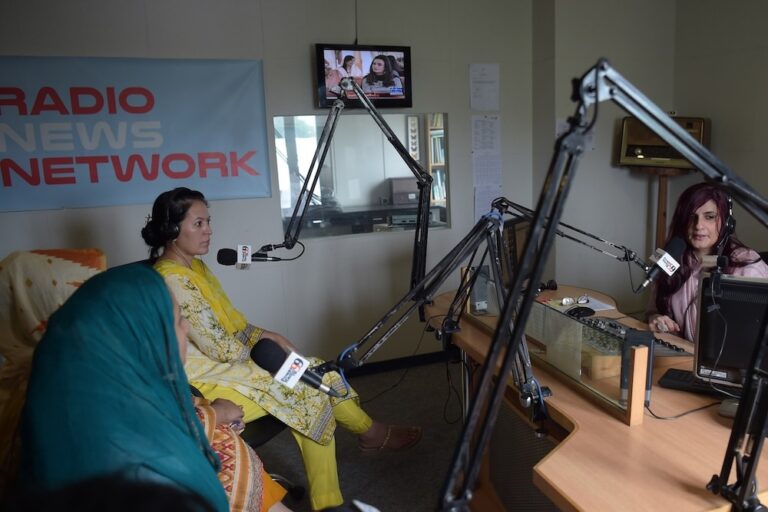The human rights declaration unveiled at the Association of Southeast Asian Nations (ASEAN) summit falls below international rights standards on freedom of opinion and expression, says SEAPA, a regional press freedom watchdog.
(SEAPA/IFEX) – Bangkok, 19 November 2012 – The standard set by the ASEAN Human Rights Declaration (AHRD) falls below international human rights standards on freedom of opinion and expression, a regional press freedom watchdog said today.
The Southeast Asian Press Alliance (SEAPA) said that the omission of the phrase “regardless of frontiers” from the declaration meant that it fell below the Universal Declaration of Human Rights (UDHR), which the regional group had pledged to uphold through the declaration.
The AHRD was unveiled by leaders of the 10 member states of ASEAN (Association of Southeast Asian Nations) yesterday. The document included a guarantee on freedom of opinion and expression through Article 23, which is lifted almost entirely from the UDHR’s Article 19, except for the said phrase.
“The omission of the phrase is a sign of the low commitment of ASEAN member countries to freedom of expression,” said SEAPA executive director Gayathry Venkiteswaran.
She explained that the phrase is a very important component of the human right, especially in a regional organization like ASEAN where communication across national borders is key to development and accountability of its members.
“It is particularly alarming that the framers of the document opted to delete the phrase in the light of borderless communications through the internet and with increasing integration and exchange among the regional media,” Gayathry said.
“This can legitimize censorship of messages from overseas,” she added, noting that criticisms of ASEAN member states include those coming from abroad – international bodies and NGOS, and opposition groups who have been forced into exile because of political repression at home.
Sub-standard principles
SEAPA also echoed criticisms of the AHRD raised by other human rights organizations which earlier called for an extension of deliberations of the draft because of the low standards it set, and the lack of adequate public consultations.
Human rights groups expressed particular concern that the AHRD contained three caveats to human rights in General Principles 6, 7 and 8, which can be used to get around the guarantees provided by the document.
“This is really appalling especially considering the practice in many ASEAN states of legally curtailing many civil liberties – including free expression – against international human rights principles,” said Gayathry.
“These caveats mean that human rights in ASEAN including free speech may continue to be curtailed,” she added citing national security, press control and criminalized speech laws currently in place in many ASEAN countries.
“Many of these national laws have been called out by UN human rights bodies as violating international norms,” Gayathry explained, “including criminal libel which is practised in almost all ASEAN states.”
“National security and public order should be very strict exceptions to curtail human rights and free speech,” she said, “but these placed at the start of the document which can mean they come before human rights.”
“In placing caveats in the AHRD principles, ASEAN has prioritised escape clauses in states’ responsibility to uphold human rights,” SEAPA’s executive director further said.
However, she said that SEAPA will still hold ASEAN states accountable for the rights in the declaration, despite limitations.
“We don’t accept what the ASEAN leaders have insisted on – that this is a non-binding document. If they have adopted it, they are committed to honouring it. We will hold the member states to the standards they agreed to, but we will be guided by the international standards on human rights,” Gayathry said.
WHAT OTHER IFEX MEMBERS ARE SAYING:
CCHR highlights the dangers of adopting a flawed ASEAN human rights declaration (CCHR, 19 November 2012)
Cambodian Center for Human Rights (CCHR) President Ou Virak comments:
“I am pretty concerned and disappointed with this flawed declaration, which the people have had no part in developing. An unclear declaration can cause schisms within ASEAN itself, as different countries interpret it differently. What’s more, some states may use it as the foundation of people’s rights, when it is not binding and at a lower standard than international law. However, human rights groups will continue to look to international norms, such as those provided by the UN, as their foundation. Provisions for rights that fall below those already applied by some 200 countries around the world would be shameful for ASEAN. And a country in the bloc that tries to defend this improper declaration will be mocked and condemned.”
ASEAN: ARTICLE 19 denounces the newly passed “human rights” declaration as fundamentally flawed (ARTICLE 19, 19 November 2012)
ARTICLE 19 joins IFEX member Human Rights Watch and other civil society organisations in condemning the adoption of the “human rights declaration”. The Declaration subjugates rights to the “regional and national context,” which fundamentally undermines the long accepted idea of universal human rights.
“The ASEAN Declaration is a slap to the face, there is no other way to interpret it. With the Cambodian government cracking down on protestors and activists while it sells off the country’s resources; with Vietnam patrolling the Internet and locking up bloggers; with Thailand’s draconian lèse-majesté law and its devastating penalties; It is clear that the priority of the ASEAN governments is self-preservation above all else,” says Dr Agnes Callamard, ARTICLE 19 Executive Director. “The cooperation of the more progressive governments of ASEAN in adopting such a flawed document is alarming, and implicates them in all human rights violations that occur as a result of this declaration,” she added.


